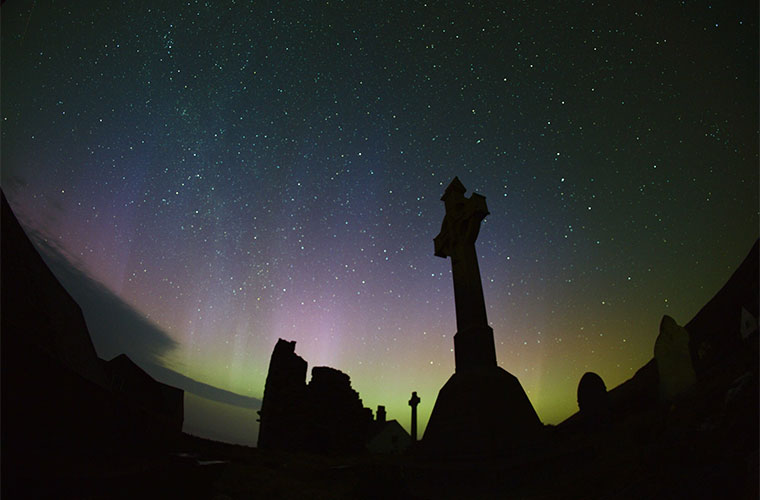YNYS ENLLI, Wales, UK – Ynys Enlli (Bardsey Island), north Wales, has received International Dark Sky Sanctuary (IDSS) certification from the International Dark-Sky Association (IDA). This certification makes Enlli the first site in Europe to achieve certification under this category.
International Dark Sky Sanctuaries are the most remote and often darkest places in the world whose conservation state is most fragile. Enlli meets strict criteria with its new designation and joins just 16 other Sanctuary sites worldwide.
Sian Stacey, Chair of the Bardsey Island Trust, said: “We are delighted to announce the news of Ynys Enlli’s new status as International Dark Sky Sanctuary today. It is a huge achievement, and I would like to thank all who have been involved. It’s the culmination of several years of hard work involving our own team as well as our partners across the region and beyond. There’s no doubt that achieving this prestigious status for Ynys Enlli will raise the profile of the island as a unique place in Wales and amongst the best in the world to appreciate the night sky. We hope it will also go a long way in securing the long-term sustainability of the island.”
Ynys Enlli is located two miles off the tip of the Llŷn Peninsula, off the coast of north Wales. Its location and geographical features make it one of the darkest places in the UK – with the mountain on the island serving as an effective barrier, limiting light from the mainland. The closest significant light pollution comes from Dublin, over 70 miles across the Irish Sea.
Known as ‘the island of 20,000 saints’ due to the Celtic and Christian monasteries established there since the sixth Century, the population of Ynys Enlli has fluctuated over the centuries. Evidence suggests that it was inhabited from as early as the Bronze age. Today, it is home to a small community of residents who work the land and fish from the island. There is also a Bird and Field Observatory and ten Grade 2-listed cottages for visitors who come to escape modern life during the holiday season.
A four-year program using the latest technology was undertaken as part of the application to monitor the quality of the night sky on the island to show that it is sufficiently dark to qualify for the designation. The IDA also required a lighting management plan and photographic evidence for this certification.
Mari Huws is one of the Wardens on Ynys Enlli and has been part of the certification process. She said: “Living here, I am always in awe of the island’s beauty – and the night sky is very much a part of that. Having secured the certification, we look forward to welcoming visitors here over the coming months and years and sharing with them our unique story. We knew we lived in a special place, this new status confirms this, with IDSS putting Enlli firmly on the global stage. In a world that’s increasingly being polluted, it’s a privilege to be able to work towards protecting something that is pristine for future generations.”
“We are delighted to welcome Ynys Ellis to the growing community of dark sky places worldwide,” said Ruskin Hartley, executive director of the International Dark-Sky Association. “With it, Wales is fast becoming one of the leading nations in protecting dark skies as a precious resource that benefits people and wildlife.”
The application received support from Welsh Government, other International Dark Sky Places locations in Wales, including the Brecon Beacons National Park and Eryri National Park (Snowdonia), Aberdaron Community Council, and Natural Resources Wales, as well as project NOS (local dark sky project), local astronomy associations, and Gwynedd Council.
Having secured IDSS status, the Bardsey Island Trust aims to continue protecting the dark skies seen from Ynys Enlli by raising awareness of this unique location in Wales and promoting the importance of the dark skies locally and nationally. Today’s announcement coincides with Wales Dark Sky Week 2023.
Tagged with dark sky, IDA, lightED